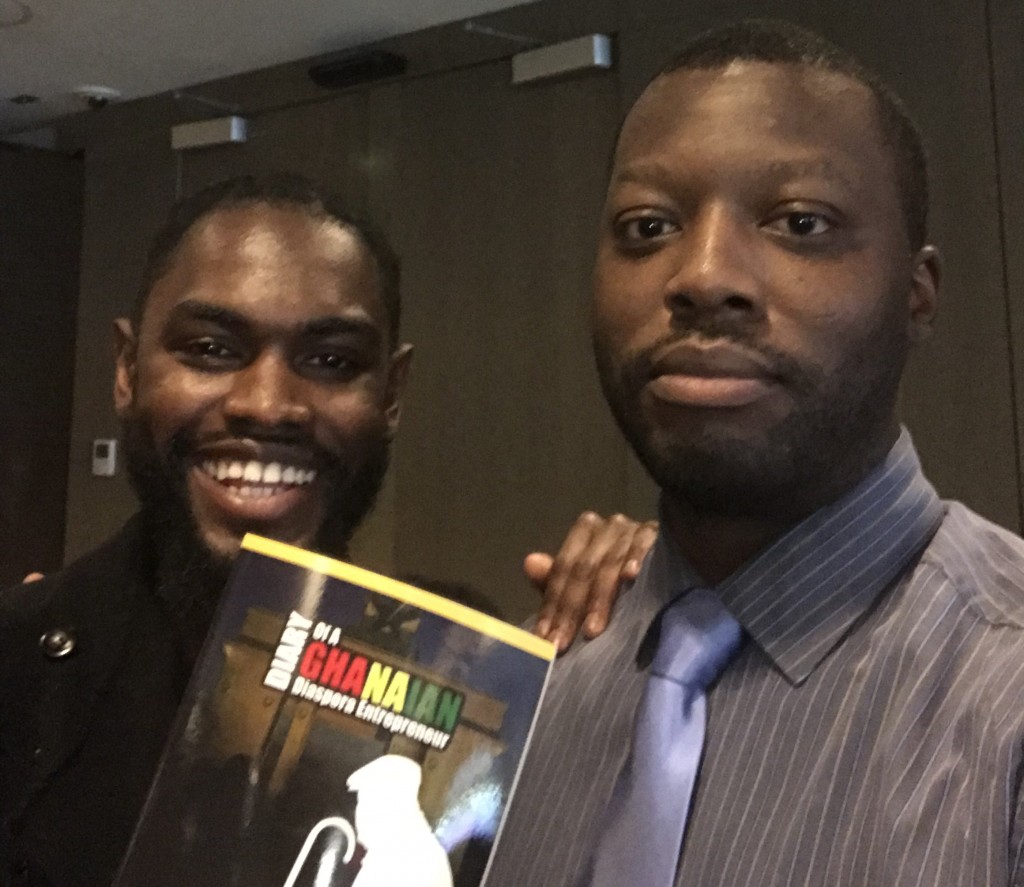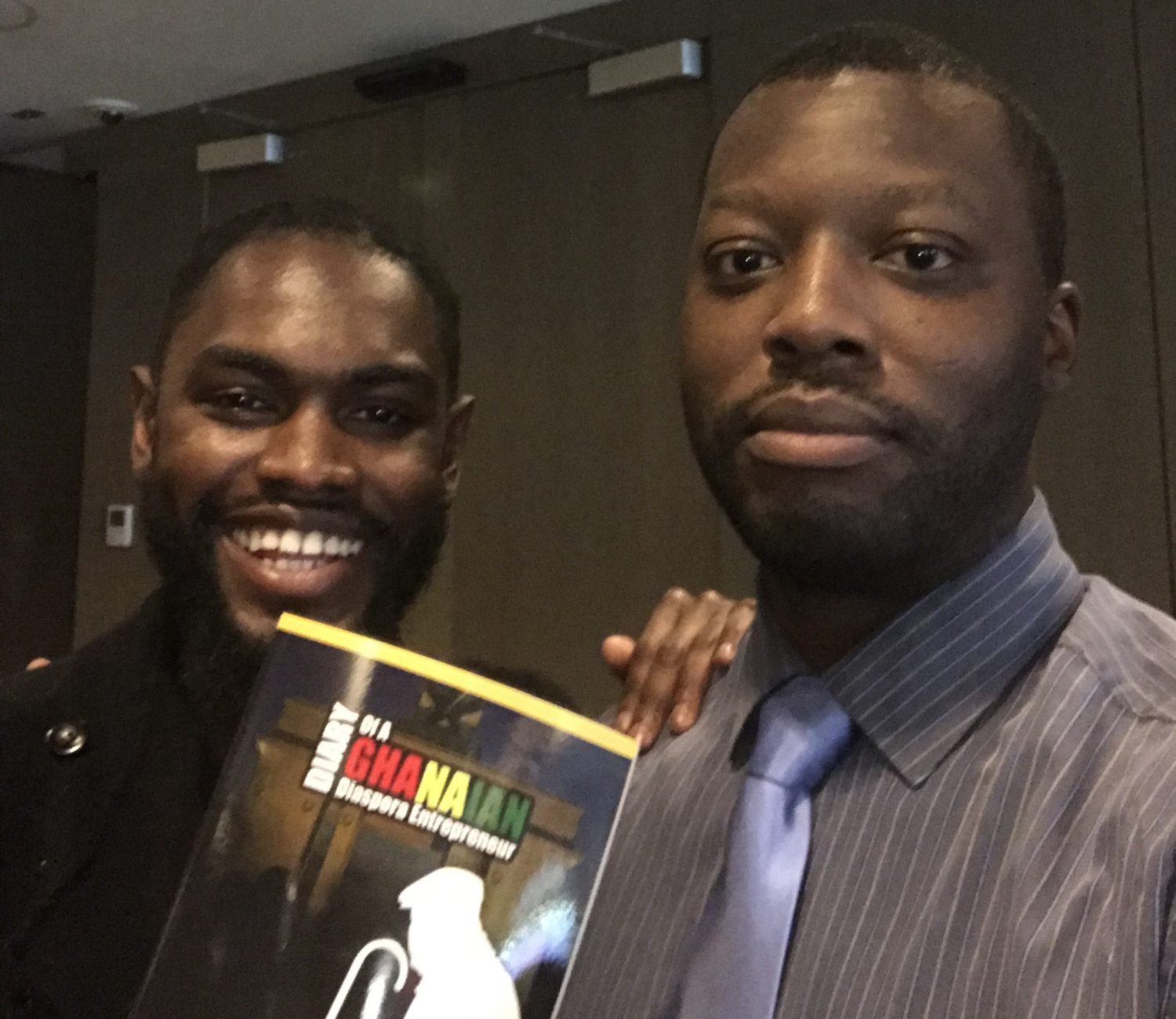An African profile: Tony Kwame Ansah, Jr., son of Ghanaian immigrants

BY TONY KWAME ANSAH, JR.
Tony Kwame Ansah, Jr. was born thirty-eight years ago in the United States of Ghanaian parents who migrated here decades ago. Despite his young age, Ansah shows a dedication to motherland Africa that is rare even among the older generations of African immigrants in the United States. “The African Magazine” was happy to stumble on this inspiring, first-generation Ghanaian American like we don’t often meet first-hand. He tells his own life story.
As a child of American immigrants from Ghana, I had the opportunity and pleasure to travel and visit the land of my ancestry many times, and I know of others who have done the same. I went to Ghana for the first time when I was only a few months old, which is probably quite rare for most American infants and toddlers. After this early childhood experience, my parents traveled to Ghana almost every two years and brought me along with them. Some of my Ghanaian American peers experienced the same but others have never been to Ghana at all.
In between these years of travel and tour, my family had a small convenience store in the U.S. where they sold West African goods and foods and provided other essential services. I recall there being other African stores nearby and out of state too, and I felt good seeing business owners from Africa.
Also: an invitation to collaborate as a cohesive African diaspora
I was a child raised on cream cornmeal finger food, red hot pepper sauce, and silver sardine cuisines who learned how to handle and manage money at a very young age. Not too many fellow Ghanaian Americans of the 1990s could say the same. But I was able to do so ahead of my peers in elementary school days off campus grounds at Linda’s Market on Mineral Spring Avenue in Rhode Island. Shout out to Mom and Dad for teaching me how to play monopoly with real money!
I spent long times at my parents’ store and saw many fellow Africans of different nationalities and other ethnicities patronize our family establishment. I did everything from inventory and cashiering to depositing funds into the business account of our family operation. My half Ashanti and half Akwapim hands touched and exchanged money to sell products and provide services until early adulthood.
Also: African philanthropy in Africa equals more prosperity
When I was studying history in undergraduate school, I got introduced to politics and economics. I read and saw the negative effects that British colonization in Ghana had on my family tree, which led my parents, relatives and others to seek greener pastures in North America because Ghana was in a regressive state, especially in the 1970s and throughout most of the 20th century. As a result, little Ghanaian communities began to spring up all over America, mostly in Massachusetts, New York, and New Jersey.
After roughly two years of chewing and consuming African literature, I decided to go study about Africa in Ghana. I was lucky enough to find and join a study abroad program to continue my education about African history and politics. My original plan was to go for one year and soak in as much information as possible, but I ended up staying longer than expected and was there for two years altogether. I must say that I enjoyed my stay for the most part. Meanwhile, wealthy Ghanaian kids born and raised in Ghana were studying abroad at institutions of higher learning in the USA.
Also: Let us create an African Renaissance sooner than later
During that time span, I got a clear understanding about the past and present history of Ghana and other parts of Africa, too. It was obvious to me that my place of birth was very different from the land of my ancestry. Things that I took for granted like drinking clean water, using faucet water, flushing toilet water, cooking food on a stove, heating food in a microwave, storing food in fridge, having electricity on 24/7, and so on were all a luxurious privilege in America, but not quite the case in most parts of Ghana.
Although times have changed since I last stepped foot on Ghanaian soil ten years ago, there’s still a large number of people who lack regular access to the basic amenities to survive. Fortunately, a wealthy middle class is growing, but at a slow speed.
I look forward to the future when the old guard passes the baton of leadership to the next generation of sharp and smart visionaries. I envision Ghana and other African nation-states with strong desires to either aggressively or slowly pursue progress and prosperity soon. As for me, I plan to be fully connected until further notice. Amen!


